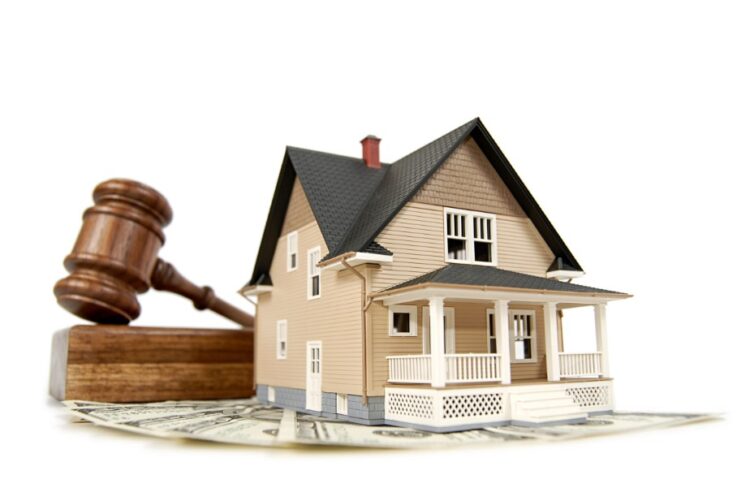As a property owner or property manager, you’ll be collecting rent every month. This income will generally allow you to cover most if not all expenses associated with the property, and pocket a little for yourself as well.
Increasing rent has obvious advantages. You’ll make more money, allowing you to cover more expenses and, in most cases, make the property more profitable. But there are also some limitations on when and how you can increase rent – and some sketchy consequences of increasing rent inappropriately.
So when does it make sense to increase rent for a property?
And when should you just sit tight?
Contracts and the Law

First, you need to understand the law. Each state and locality has different laws and statutes in place concerning residential and commercial property management. In some states, there are active rent control policies in play, effectively putting a ceiling on how much you can charge for rent in a given property. But in most areas and with most properties, you’ll have considerable control over what you charge for rent.
In most areas, your rent increases are mostly limited by contractual obligations. If you have a one-year lease in place that sets the rent figure at $2,000 a month, you’ll be prohibited from increasing that rate before the lease expires. When the lease is up, you’ll have the option of increasing the rent before finding a new tenant.
If you put a rent escalation clause into your contract, you can formalize into law the timing and circumstances allowing you to increase rent. For example, you may stipulate that rent will increase at a rate of 10 percent every 2 years.
You may also create a rent escalation clause that ties rent escalation to a specific external cause; for example, you might stipulate that rent will increase proportionally to any increases in property taxes.
If you’re confused about the law in your area, or if you just want to make sure you’re doing things correctly, make sure you talk to a real estate lawyer as soon as possible.
The Risks of Inappropriate Rent Increases

Even if you’re legally permitted to increase rent, if you increase rent egregiously or in an inappropriate way, it can hurt you in several respects.
- Chasing out tenants ─ Good tenants are hard to come by. If you have good tenants and you increase rent unfairly or in a shocking way, you might lose them forever. Your next set of tenants will always be a gamble.
- Prolonged vacancies ─ A high vacancy rate can kill the profitability of your property. If rent is higher than is justified in a given area, it’s going to make your vacancies prolonged and much more financially painful.
- Neighborhood dynamic issues ─ If you keep your rent high enough to prolong the vacancy, and if other people in your neighborhood do the same, it can have a major impact on neighborhood dynamics. With empty buildings and fewer people, the quality of the neighborhood may drop quickly.
When Does It Make Sense to Increase Rent for a Property?

So when does it make sense to increase rent for your property?
These are some reassuring signs that it’s acceptable to move forward:
- Higher rent in the area ─ Look at the properties around yours. Look at properties very similar to yours. Are all these properties showcasing rent hikes? If everywhere else in the neighborhood is increasing rent, it probably makes sense for you to increase rent as well.
- Major renovations and value additions ─ It’s also justified to increase rent if you’ve made major renovations or value additions recently. For example, you might have added a new parking space or refinished the kitchen. If the property is more valuable, more beautiful, or both, a higher cost can easily be justified.
- Property tax increases ─ We all hate property taxes, and that’s partially because they always seem to increase. If property taxes increase, so will your expense basis, justifying your rent increase.
- Inflation and higher cost of living ─ Until recently, inflation was near all-time highs, pushing the cost of everything higher. In this type of environment, where the prices of everything are rising considerably, a rent increase may fit perfectly.
- Other expense increases ─ You can justify a rent increase by referencing almost any consistent, measurable expense increase. If it costs more money to take care of the property or provide services, rent must accommodate that, or the property will no longer be profitable.
What If Increasing Rent Doesn’t Make Sense?
If increasing rent doesn’t make sense, keep rent as is. And if the financial equations don’t work with rent as is, your best option is probably selling. In some cases, there may no longer be a profitable path forward, and that’s okay.
Figuring out when and how to increase rent can be challenging, especially if you’re new to the world of real estate. But if you follow these guidelines, adhere to the law, and try to do things in a fair and sensible way, your property management strategy should remain sound.
 Hi Boox Popular Magazine 2024
Hi Boox Popular Magazine 2024



